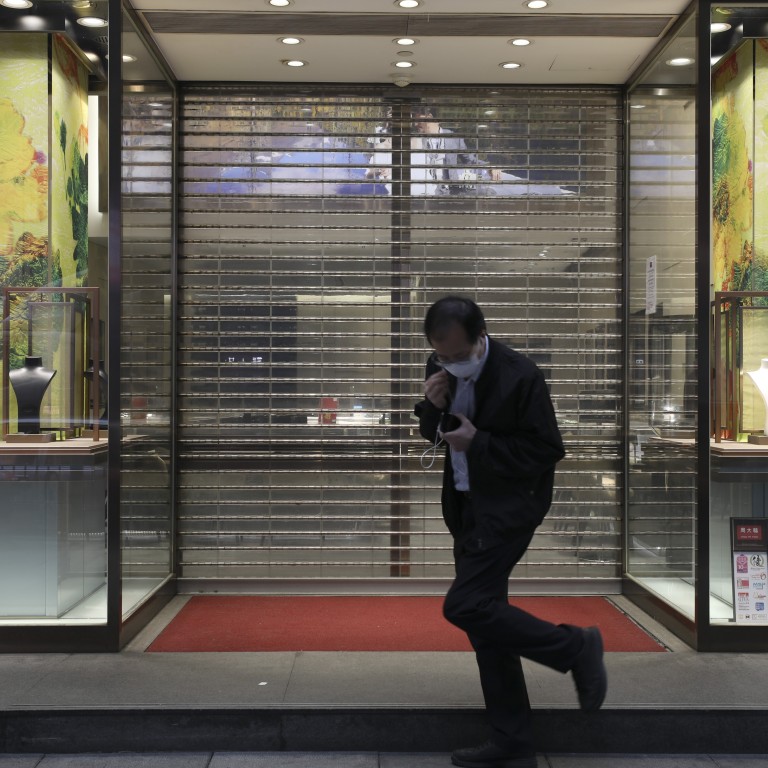
Coronavirus: Hong Kong retail sales in record 44 per cent decline as health crisis batters struggling sector
- Official year-on-year figures for February reflect Covid-19 toll on retailers after city marked its first coronavirus cases in late January
- HK$25 billion wiped off monthly consumer spending in Hong Kong in about a year amid warning economy could shrink 10 per cent in second quarter
Sales in Hong Kong plummeted a record 44 per cent in February, official year-on-year figures revealed on Tuesday, as coronavirus-stricken retailers warned even the strongest faced collapse without more government support.

A Hong Kong government spokesman said February’s figures marked the steepest single-month fall on record, mainly due to Covid-19’s impact on tourism and spending.
“The business environment of retail trade will remain extremely austere in the near term, as the Covid-19 pandemic has brought inbound tourism to a standstill and severely dented local consumption demand,” he said.
Hong Kong Retail Management Association chairwoman Annie Tse Yau On-yee said total sales in February were on a par with levels in 2006 and 2007.
The “shocking” 79 per cent year-on-year decline for sales of jewellery, watches, clocks and valuable gifts was far higher than the 40 to 50 per cent drop during the protests, Tse added.
While officials were mulling another round of crisis funding following the HK$30 billion package unveiled in February, Tse hoped the government could help the retail sector with rent and salaries, such as subsidising wage bills.
“If there is no timely assistance in these two areas, honestly, many retailers cannot endure any more no matter how big they are or how strong their foundations are because it’s just about burning money now,” she said.
Only three sectors, relating to food and supermarkets, saw a double-digit increase in sales, she said.
Tse forecast that March performance would drop up to 40 per cent from last year. Retailers were also said to be pessimistic about the figures for April and May, fearing the slump could drag beyond June.
If there is no timely assistance in these two areas, honestly, many retailers cannot endure any more no matter how big they are or how strong their foundations are because it’s just about burning money now
Economist Andy Kwan Cheuk-chiu, from the ACE Centre for Business and Economic Research, predicted the sector would continue to see sales falling sharply in the next two or three months – and that the city’s gross domestic product (GDP) could contract by 10 per cent or more in the second quarter, from the same period the previous year.
His forecast for annual GDP was a 3 to 5 per cent decline on last year, much worse than the government’s earlier forecast of between 0.5 per cent growth and a 1.5 per cent contraction.
At least 60 more people test preliminary positive for coronavirus
“The government needs to see how to help the smaller businesses, otherwise the city will soon see a wave of shutdowns,” he said.
However, Terence Chong Tai-leung, an economist at Chinese University, said a double-digit contraction was unlikely because the city’s other pillars such as financial services and logistics were running as usual.
Hong Kong confirmed its first coronavirus case on January 23 and now has more than 700, including four deaths.

